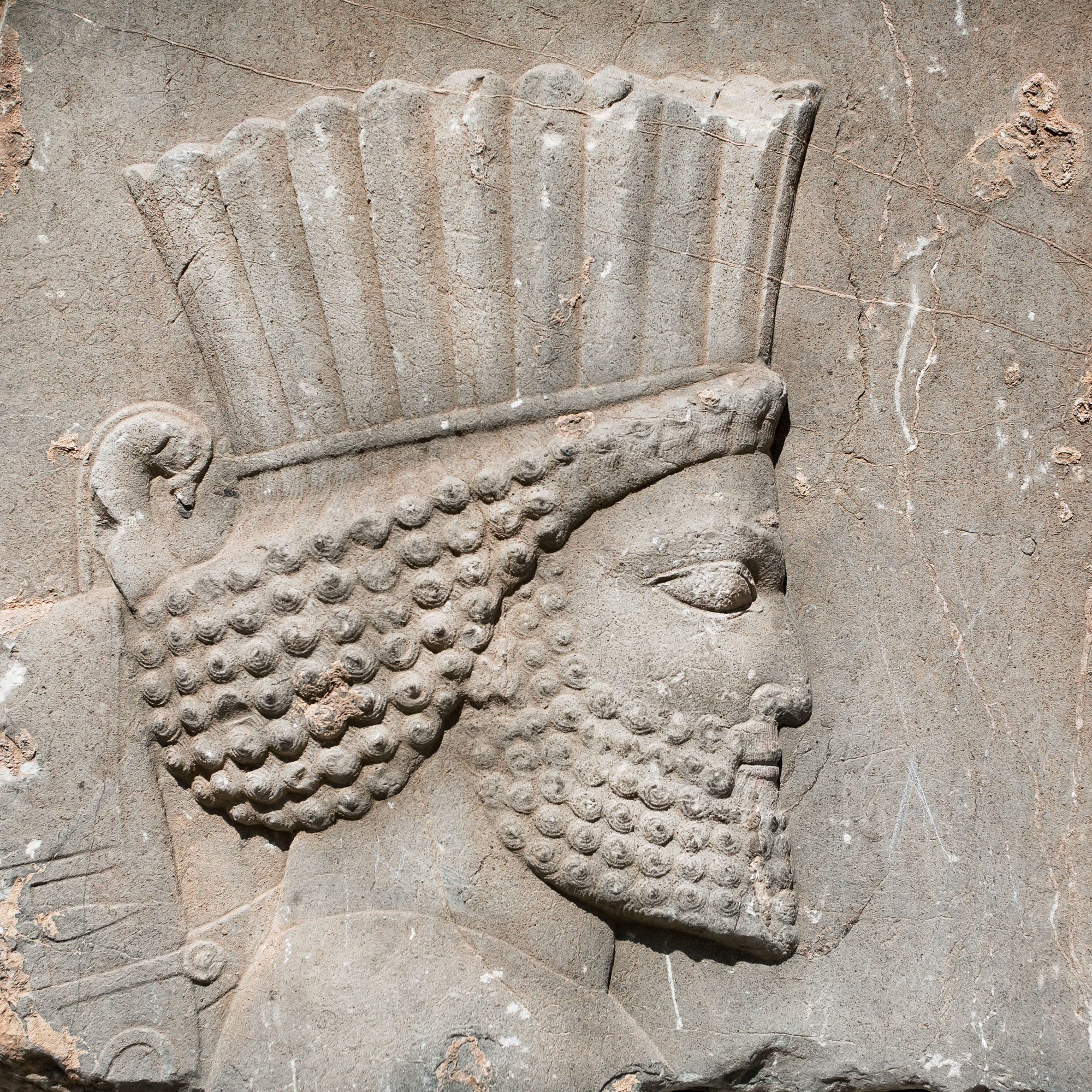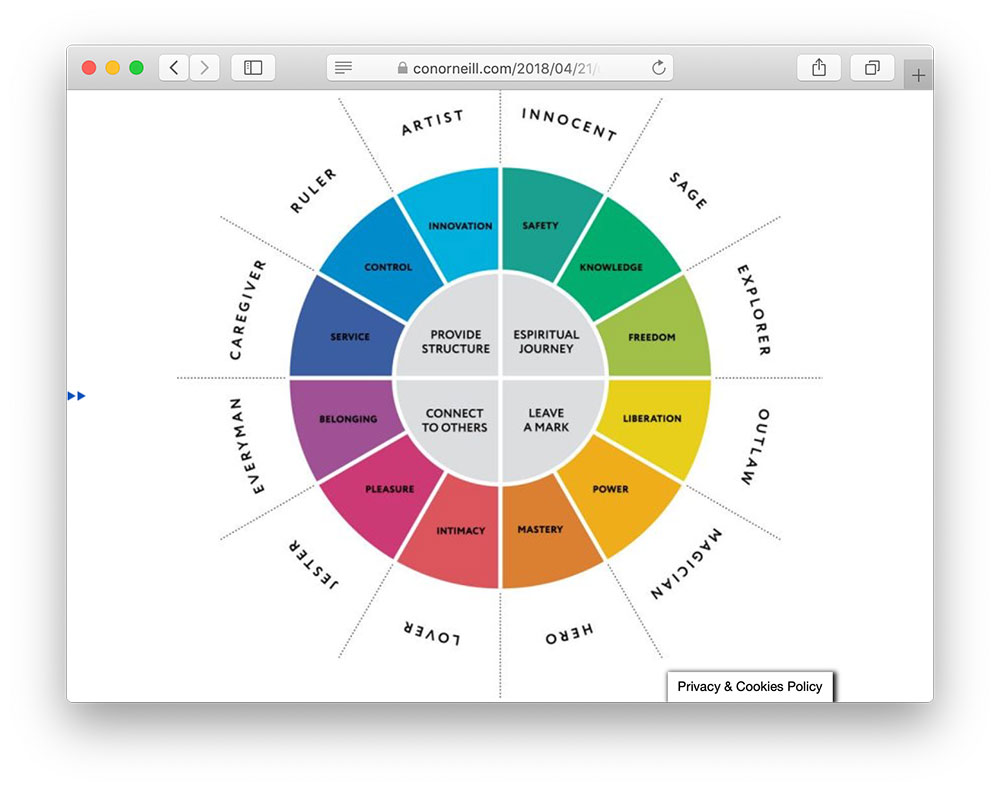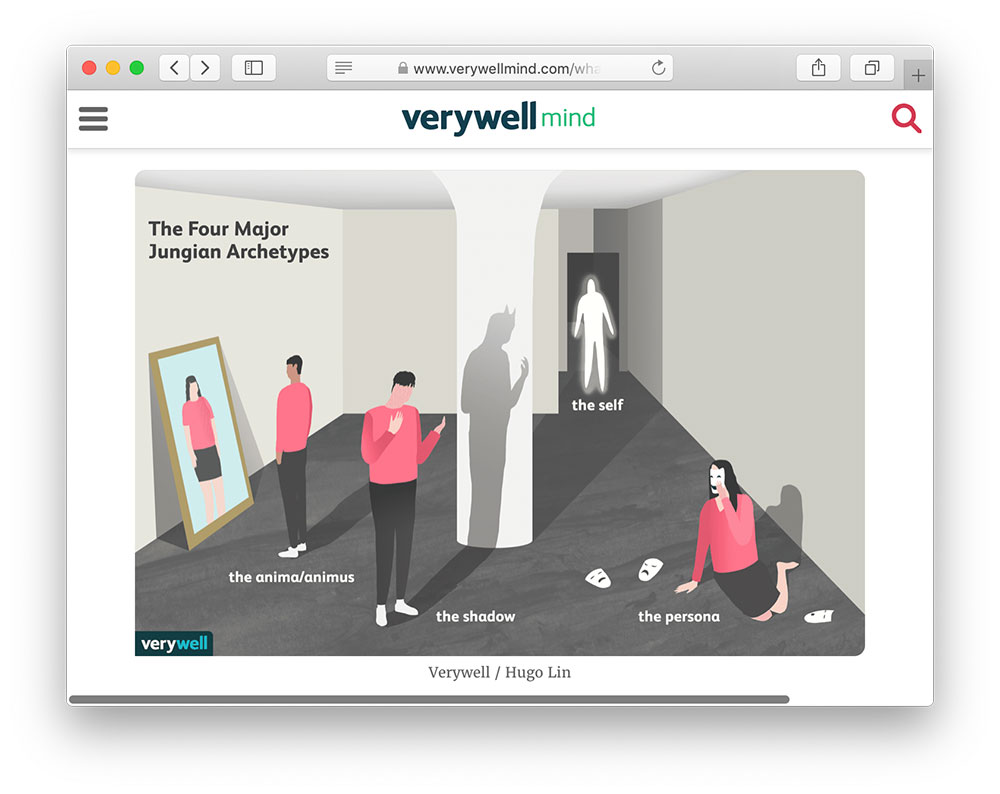Archetypes
Archetypes are universal, inborn models of people, behaviors, or personalities that play a role in influencing human behavior. They were introduced by the Swiss psychiatrist Carl Jung, who suggested that these archetypes were archaic forms of innate human knowledge passed down from our ancestors.
Kendra Cherry

“There are forms or images of a collective nature which occur practically all over the earth as constituents of myths and at the same time, as individual products of unconscious.
These [archetypes] are imprinted and hardwired into our psyches.”
Carl Jung
Understanding Personality: The 12 Jungian Archetypes
conorneill.com
The term “archetype” means original pattern in ancient Greek. Jung used the concept of archetype in his theory of the human psyche. He identified 12 universal, mythic characters archetypes reside within our collective unconscious.
Jung defined twelve primary types that represent the range of basic human motivations. Each of us tends to have one dominant archetype that dominates our personality.
16 Personalities - Take the Personality Test
16personalities.com
Take our Personality Test and get a “freakishly accurate” description of who you are and why you do things the way you do.
Explore your personality traits and learn how to leverage them in order to grow as a person.
We’ve developed many tools and assessments to help you explore how your personality traits affect various aspects of your life. Please pick a category to dig deeper into that specific area.
Take the test @ https://www.16personalities.com




